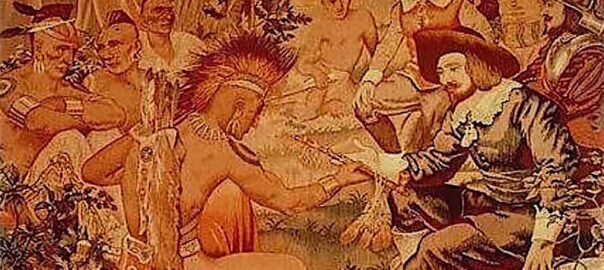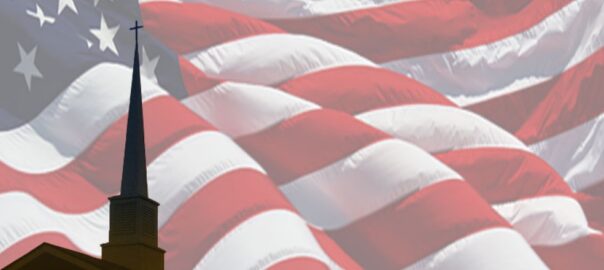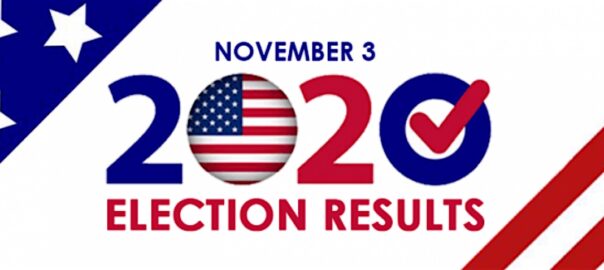
Dr. Charlie offers hopefulness and realism as he assesses the current results of the 2020 Election. Americans on the whole vote toward the center and want to like their leaders.

Dr. Charlie offers hopefulness and realism as he assesses the current results of the 2020 Election. Americans on the whole vote toward the center and want to like their leaders.

Find out why 1619 and 1620 are both important dates in our history. There is much injustice and many reasons to be thankful. Discover the tapestry of our history.

The United States of America is – like every person we meet and any nation we study – beautiful and broken. Her history is filled with saints and sinners, imperial oppression and unprecedented liberty. As we gather around tables and express our gratitude to God and each other, here are some paradoxical facts that are part of our historical tapestry:
The USA continues as an experiment in virtue-based liberty, with a history of hospitality and generosity as well as nativism and xenophobia. As we rightly give thanks, let’s rededicate ourselves to building a land of access, equity, and opportunity for all.

The American Experiment continues as a beacon of freedom in a world where billions live under oppression. Our founders and framers made many mistakes (especially retaining slavery and failing to start the road to emancipation, among others.). As the Bill of Rights was presented, the first sixteen words of the First Amendment changed history: “Congress shall make no law respecting an establishment of religion, or prohibiting the free exercise thereof…” For the first time among modern nations, there is no state religion and the federal government cannot interfere in freedom of conscience or faith. This is NOT a prohibition of religious influences in politics or public speech. The “wall of separation” Jefferson affirmed in later writings was protection for religious communities, not divorcing faith from society.
The Church (and other religious communities) have enjoyed much favor for over two centuries. In the last half-century, secularizing forces have sought to limit Christian influences from public institutions. Christians have felt marginalized and persecuted as the civil consensus has devolved from universal affirmations of reverence of God and moral absolutes to a fragmented, pluralistic competition among narratives and “truths.” Many academic and political elites view Christianity as belonging in the rearview mirror of history.
Biblical believers in America and the West find themselves in a similar place to the Jews who were exiles in Babylon in the 6th century BC, and later established small enclaves in Judea and throughout the Mediterranean world under multiple empires. Although limited in direct political power, Jewish communities and leaders exercised significant influence in economic, political, and social circles for centuries. The stories of Daniel, Esther, Ezra, and Nehemiah, along with historical narratives outside the Bible all affirm these positive influences.
This current moment offers the opportunity for the Church to be a different voice than the polarized political powers or the amoral and anarchistic cultural “influencers.” Though we have less direct influence, the commissioned and empowered members of local churches can be “salt and light” in their arenas of work and play, influence and service. Just as the Jews were purified from their idolatry through divine judgment, perhaps this moment will help Christian believers recover the depth and breadth of God’s kingdom and become effective witnesses in deed and word.

While the final results are still being litigated, there are some clear takeaways from the 2020 election that are vital building blocks for a better future. It is my hope that all thoughtful people will pause and discern this moment well.
Insight One: Just as 2016 was in large part a rejection of Candidate Clinton, so 2020 will be seen among some as a reaction to four years of President Trump. Though he and Republicans did better than expected, there were still enough negatives to change votes.
Insight Two: 2020 is a repudiation of extremes, particularly socialistic tendencies within the Democratic party. Americans intuitively lean toward the center and are suspicious of groups calling for an overhaul of major systems.
Insight Three: We must do better to ensure access, equity, and opportunity for all citizens to vote, and eliminate any hints of fraud and malfeasance. Whether current lawsuits and testimonies change the projected winners, we can do better.
Insight Four: COVID-19 cast a shadow over what was a growing domestic economy and several foreign policy wins for the current Administration. Hopefully the next Administration and Congress will not undo much of the progress that has been made.
Insight Five: American media and polling agencies are failing the populace in their pursuit of a political agenda. Apart from direct incitements to violence and salacious material, there should be no censorship of opinions. The “fact-checking” agencies need women and men of all persuasions at the helm if they are going to have any credibility.
Insight Six: There is a silver lining in the clouds of anxiety: record numbers of people actually voted. Though we must improve systems, it is heartening to see millions peacefully casting their votes and no widespread accusations of voter suppression (this is distinct from the current processing and tallying issues).
Insight Seven: Finally, the contentious American public square reveals a need for a moral and spiritual awakening that will propel reverence before the Almighty, respect for one another, and shared values and virtues that are essential to liberty.
Regardless of final results, there are clear signs of the beauty and brokenness of our beloved land. May we help build a better future.